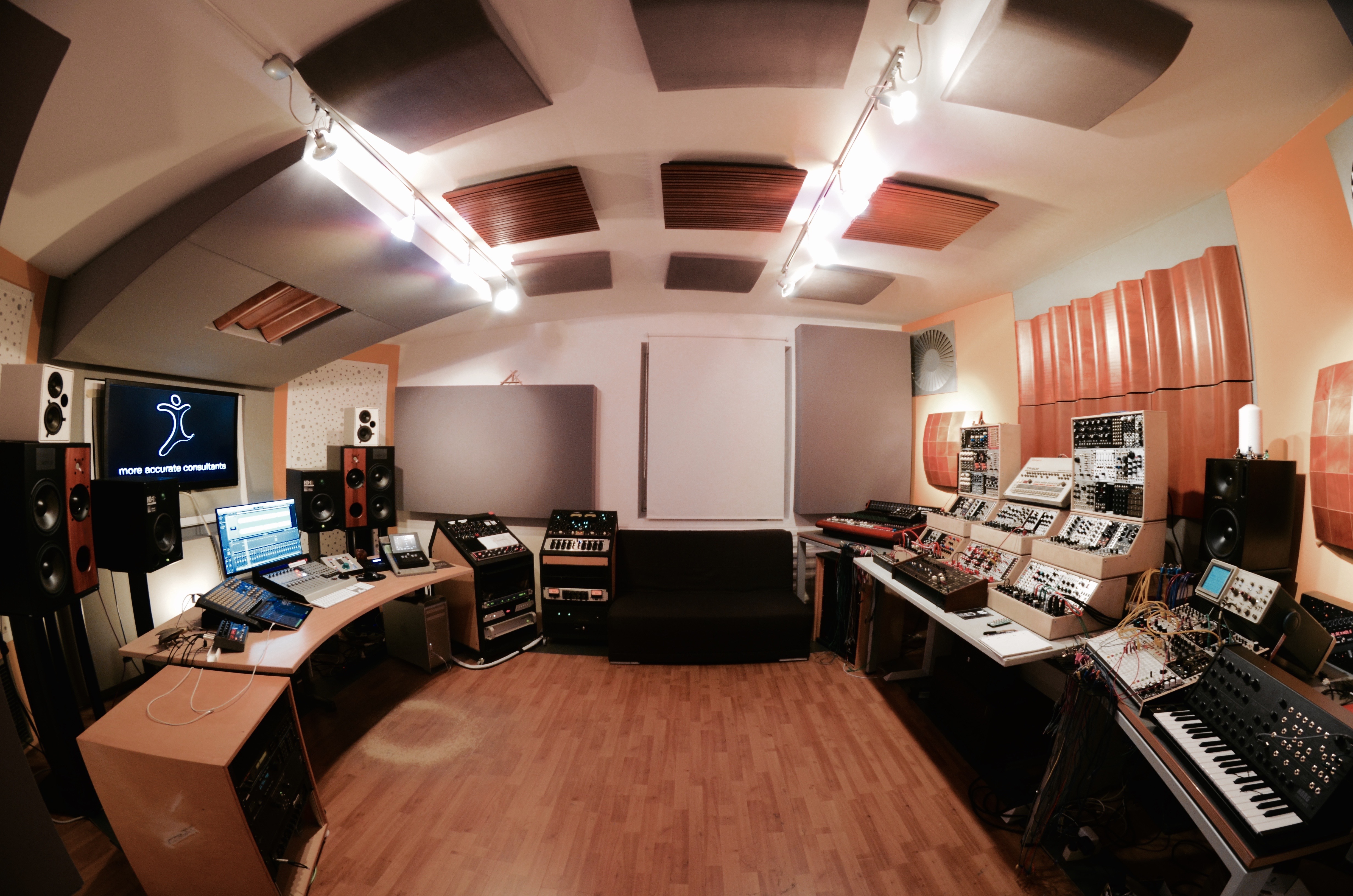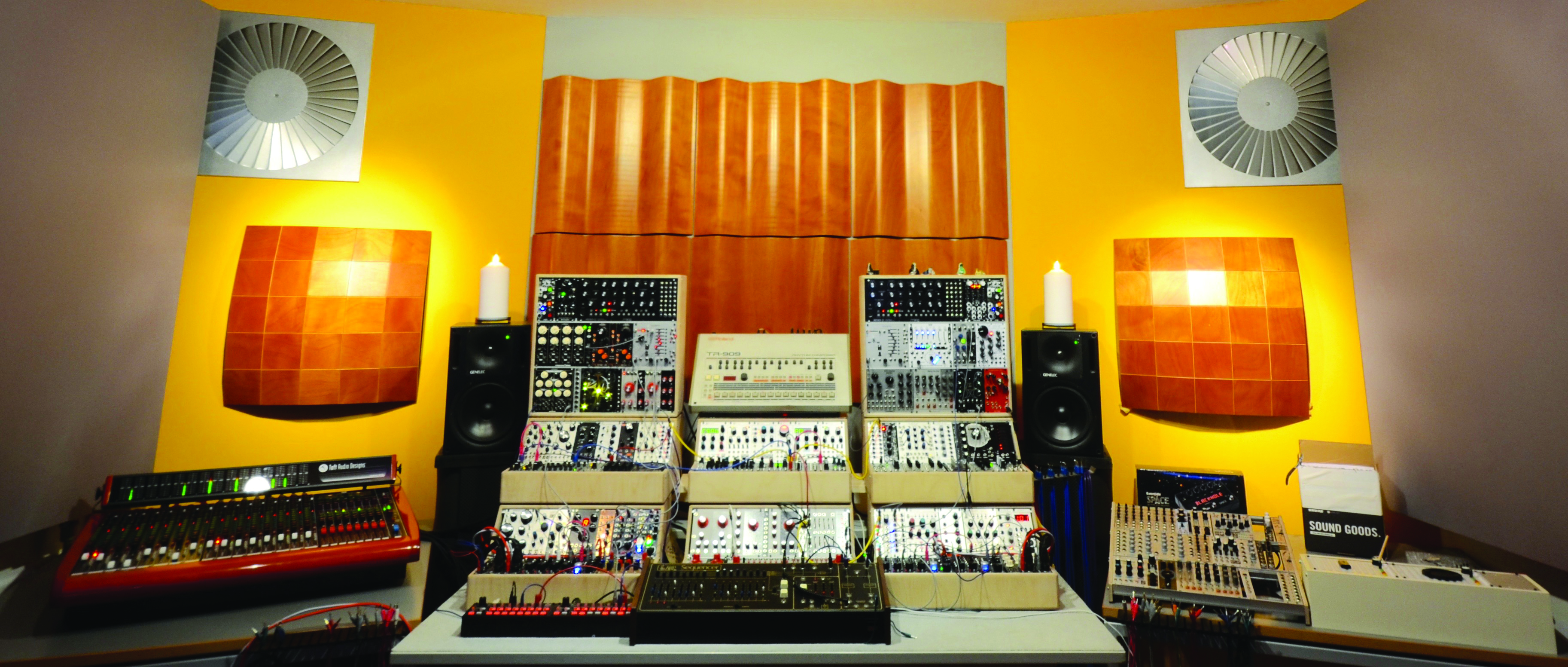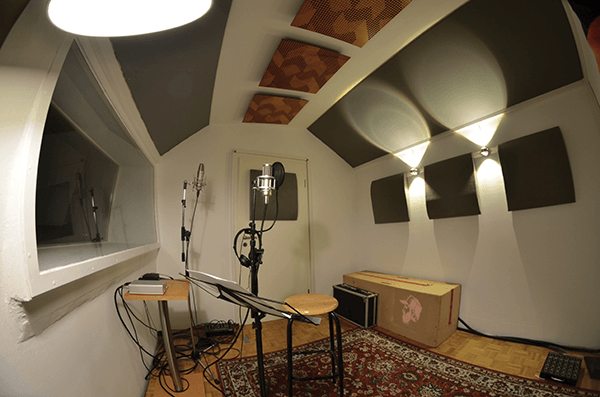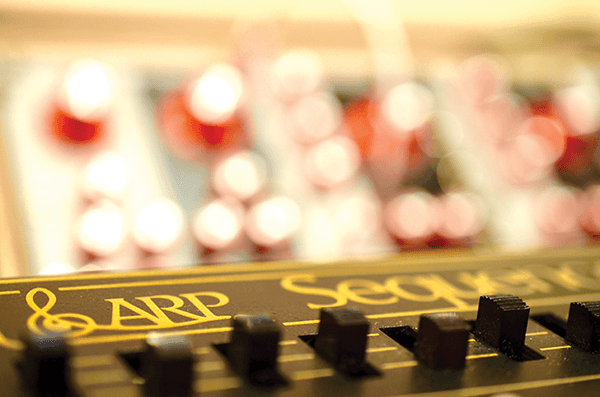Studio Interviews: More Accurate Consultants
It’s time for another beautiful studio and this time round MusicTech travels to Germany’s More Accurate Consultants for a great ‘pro’ and Eurorack space… MusicTech: Tell us about your studio? Robert Hauck: The complex has a long and infamous history. It was started decades ago by Michael Münzing and Luca Anzilotti, founding SNAP!, Moses P. […]

It’s time for another beautiful studio and this time round MusicTech travels to Germany’s More Accurate Consultants for a great ‘pro’ and Eurorack space…

MusicTech: Tell us about your studio?
Robert Hauck: The complex has a long and infamous history. It was started decades ago by Michael Münzing and Luca Anzilotti, founding SNAP!, Moses P. and Logic Records over to Eye Q and Harthouse Records in the 90s. It gave artists like DJ Hell, Laurent Garnier, Resistance D. and Anthony Rother a space for their creativity, productions and output. From my perspective, this is the ideal place to grow ideas and to get together with clients from all over the world, with our business having recently expanded to retail of high-end outboard gear, Eurorack modular and room acoustics, under the brand More Accurate.
Within this, we have specialists from all over Germany for recording, voiceover, mixing and mastering engineers – all working in the studio. We help customers find the right gear and sound for their needs and also run conferences and events.

MT: Give us a rundown of the gear in the studio…
RH Our philosophy is: sound can always only be as good as the room and the components that deliver it and what is received by the ear. So, get your room, angles and distances right before spending a fortune on equipment which won´t make it any better. So, starting with the most important part of the studio…
Room acoustics: our core studio room was designed in the 90s as a room-in-room, based on a concept widely known as LEDE. The room acoustics are custom-manufactured modules as well as those from our main commercial supplier Artnovion.
Monitoring: Crane Song Avocet with Quantum convertor – a luxury piece of art and sound; Meyer Sound HD-1 stereo nearfield, a classic reference speaker; KS Digital ADM-10 stereo midfield; Genelec 1031 APM and 1092; RFT BR 25 (today known as ME Geithain) – small but lovely, with good representation of what you have basically been doing; plus an ART power supply – clean power makes a lot of difference.
DAW/main hardware: Apple Mac Pro 8-core; Antelope Orion 32 – the heart of our system, solid wide sound with a great clock; RME ADI-8 DD; UAD-2 Duo; Mackie Control.
Analogue and digital hardware: (part of the test and sales system) TC 6000 System; Shadow Hills mastering compressor; Thermionic Culture Fat Bustard; Manley Massive Passive; Bettermaker EQP-232; Manley Vari-Mu; More Accurate Audio custom summing mixer; Kush Audio Clariphonic; Lexicon 300;
Eventide Space; Roland SDE-330; Toft ATB-16 (analogue mixer and multitrack output for the modular section); Roland TR-909 (it´s the groove and masterclock of the modular system).
Software: Korg Legacy Collection (been in love with the Korg MS-20 filter for at least 10 years); Soundtoys bundle; Slate Digital bundle; Universal Audio UAD emulations.
Modular/Eurorack: the backdrop of the studio and constantly changing, so our clients can test what they like. Broadly, it comprises an ARP 1613 analogue sequencer that works perfectly with today’s Eurorack format. We have modules from Verbos Electronics; Mutable Instruments; Frap Tools (mixers);Endorphin.es; Erica Synths; Make Noise; Noise Engineering; custom modules based on Moog, Roland and ARP; Music Thing Modular; Tiptop Circadian Rhythm; and Vermona.

MT: Favourite gear?
RH Basically, there is no favourite. We only have gear in we love and use, there is none we would consider as unnecessary. As our motto says: we only sell what we love to use and abuse!
MT: How much time do you get to spend in the studio each week?
RH Not sure if you should really print this due to German working restrictions, but to be honest, 70 to 80 hours per week is probably average.
MT: How do you use your studio?
RH The main use is still for production, mixing and mastering. Over the past three to four years, it’s also used as a demo room and sales for high-end outboard, speakers, modular and room acoustics. Nonetheless, anyone is welcome to work here!

MT: What’s next on your shopping list, gear-wise?
RH To name but a few: a Crookwood Mastering Console, which will provide more routing flexibility through the master chain of the Lexicon 480 – I’m not aware of anything comparable to it.
MT: Dream gear?
RH Ha ha, that’s an unfair question! A Fairchild, just to own one and sometimes cuddle it, and probably an original Keith Emerson signed Emerson Moog Modular. An EMI Abbey Road REDD.37 console could also be considered: hail to The Beatles!
MT: Any advice for aspiring producers and studio owners?
RH Team up with others, as no one can do or know everything – everyone has their own field of expertise.Be thankful for the ones who criticise. Finally, always stay true to your ideas.